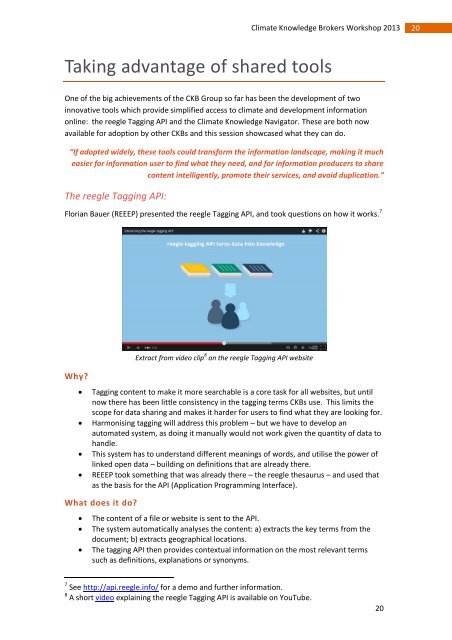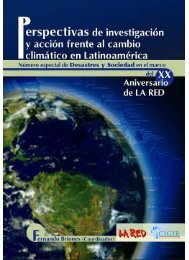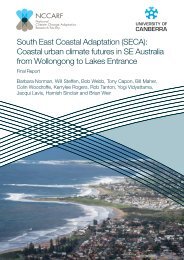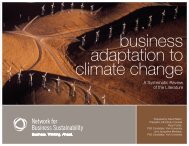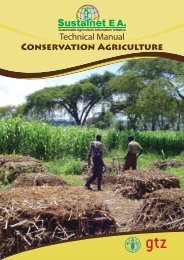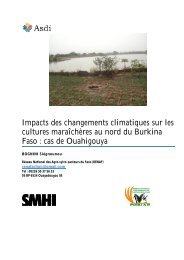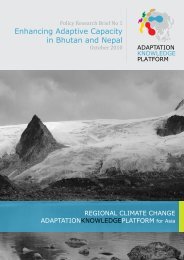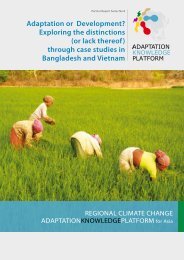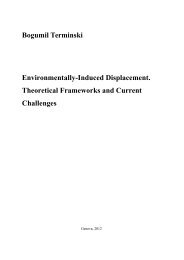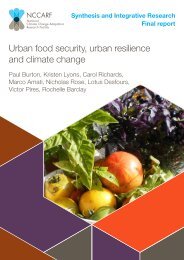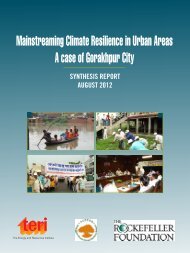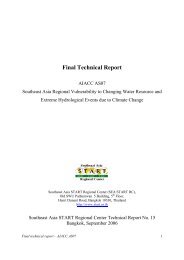You also want an ePaper? Increase the reach of your titles
YUMPU automatically turns print PDFs into web optimized ePapers that Google loves.
Climate Knowledge Brokers <strong>Workshop</strong> 2013<br />
20<br />
Taking advantage of shared tools<br />
One of the big achievements of the CKB Group so far has been the development of two<br />
innovative tools which provide simplified access to climate and development information<br />
online: the reegle Tagging API and the Climate Knowledge Navigator. These are both now<br />
available for adoption by other CKBs and this session showcased what they can do.<br />
“If adopted widely, these tools could transform the information landscape, making it much<br />
easier for information user to find what they need, and for information producers to share<br />
content intelligently, promote their services, and avoid duplication.”<br />
The reegle Tagging API:<br />
Florian Bauer (REEEP) presented the reegle Tagging API, and took questions on how it works. 7<br />
Why<br />
<br />
<br />
<br />
<br />
Extract from video clip 8 on the reegle Tagging API website<br />
Tagging content to make it more searchable is a core task for all websites, but until<br />
now there has been little consistency in the tagging terms CKBs use. This limits the<br />
scope for data sharing and makes it harder for users to find what they are looking for.<br />
Harmonising tagging will address this problem – but we have to develop an<br />
automated system, as doing it manually would not work given the quantity of data to<br />
handle.<br />
This system has to understand different meanings of words, and utilise the power of<br />
linked open data – building on definitions that are already there.<br />
REEEP took something that was already there – the reegle thesaurus – and used that<br />
as the basis for the API (Application Programming Interface).<br />
What does it do<br />
<br />
<br />
<br />
The content of a file or website is sent to the API.<br />
The system automatically analyses the content: a) extracts the key terms from the<br />
document; b) extracts geographical locations.<br />
The tagging API then provides contextual information on the most relevant terms<br />
such as definitions, explanations or synonyms.<br />
7 See http://api.reegle.info/ for a demo and further information.<br />
8 A short video explaining the reegle Tagging API is available on YouTube.<br />
20


